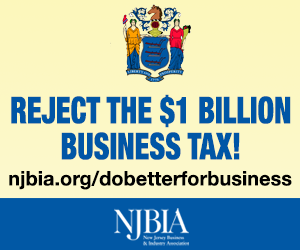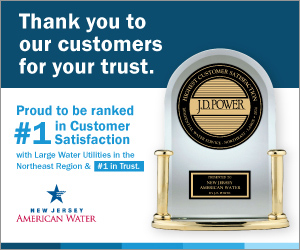Murphy Administration Leading Multi-Agency Efforts to Save Lives With Naloxone
Murphy Administration Leading Multi-Agency Efforts to Save Lives With Naloxone
(TRENTON) – The Murphy Administration is using innovative strategies to increase access to naloxone through multi-agency efforts including free distribution of the life-saving antidote, increasing Medicaid access to opioid addiction treatment, and authorizing paramedics to carry buprenorphine, an oral medication used to mitigate severe opioid withdrawal symptoms after a naloxone reversal.
The CDC today underscored the importance of naloxone as a tool in addressing opioid overdoses nationally with data from their latest Vital Signs study. There were more than 3,100 overdose deaths in New Jersey last year.
Law enforcement and EMS have administered naloxone 27,442 times over the last two years.
And, in what is believed to be the largest single-day public distribution of free naloxone in the country, on June 18th of this year, the Department of Human Services distributed more than 32,000 free doses of naloxone in one day to 16,000 New Jersey residents to help them be prepared to respond to an overdose.
“Expanding access to naloxone is a key part of the Murphy Administration’s strategy to save lives and combat the opioid epidemic,” New Jersey Department of Human Services Commissioner Carole Johnson said. “Parents, friends, and neighbors from across the state came out on our Free Naloxone Day to be part of the solution and are now better prepared to stop overdoses and save lives.”
Commissioner Johnson also noted that the Murphy Administration has increased access to medication-assisted treatment (MAT) – the clinical standard for treating opioid addiction – by removing Medicaid prior insurance authorization requirements for treatment, improving Medicaid payment for MAT, and increasing training for health care providers to offer MAT.
Since the Fall of 2017, the number of standing orders issued by the Department of Health to dispense naloxone without a prescription has steadily increased. The Department has issued 590 standing orders, which covers more than 1,000 pharmacists working at about 450 pharmacies around the state. Changes in the law in 2017 allowed any state-licensed pharmacist in good standing to apply for a standing order from the Department of Health to dispense the antidote.
“Standing orders allow pharmacists to dispense naloxone to individuals at risk of an overdose or to an individual who wants to administer it to a loved one or someone in an emergency,” said New Jersey Department of Health Acting Commissioner Judith Persichilli. “Naloxone is part of the Department of Health’s Harm Reduction Strategy, which is an evidence-based public health tool to prevent overdose deaths and support individuals with substance use disorder by addressing their health and social needs.”
Many of our major chain grocery stores and pharmacies like Shop Rite, Wegman’s, Costco, CVS, and Rite Aid participate in the program. Opioid Overdose Prevention Programs and all seven Harm Reduction Centers also dispense naloxone without a prescription.
In addition, on June 24, the Health Commissioner issued an Executive Directive allowing the medical directors of the state’s 21 Mobile Intensive Care Unit (MICU) programs to authorize paramedics to carry buprenorphine, an oral medication used to mitigate what can be severe symptoms of opioid withdrawal after a Naloxone reversal. The MICU programs can—but are not required to—stock the medication as part of the approved list (formulary) of drugs they can administer.
The administration seeks to continue to pursue a data driven response to ensure that those who need naloxone the most are getting it with NJ Opioid Data Dashboard and NJ CARES providing information on naloxone data distribution across the state.
In preparation for International Overdose Awareness Day, the Department of Health is hosting Fighting Stigma to End the Overdose Epidemic: A Harm Reduction Workshop, on August 21,which will feature national experts and local leaders discussing how harm reduction policy and practice can prevent overdose deaths, reduce drug-related stigma, decrease transmission of HIV and Hepatitis C, and promote the dignity and health of all New Jerseyans, including individuals with substance use disorder.









